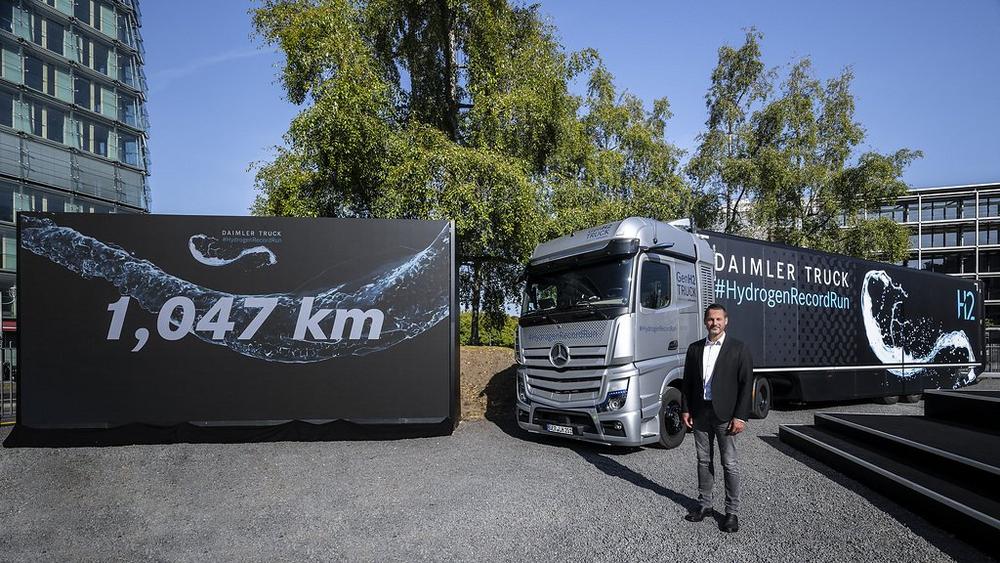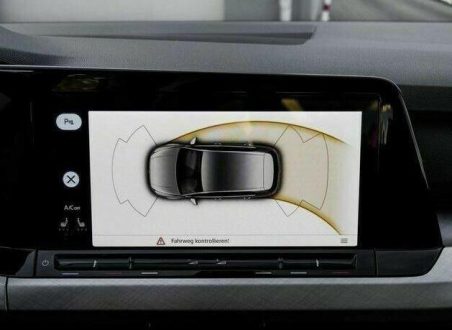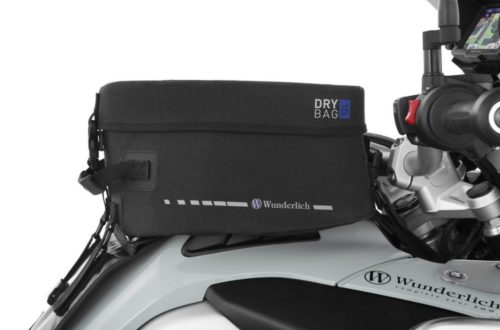
Daimler Truck #HydrogenRecordRun: Mercedes-Benz GenH2 Truck cracks 1,000 kilometer mark with one fill of liquid hydrogen
- A prototype Mercedes-Benz GenH2 Truck covered a distance of 1,047 km between Woerth am Rhein and Berlin
- Daimler Truck reaches another milestone with the #HydrogenRecordRun, within the framework of the dual-track strategy with hydrogen and battery-powered vehicles
- Andreas Gorbach, Member of the Board of Management of Daimler Truck AG, Head of Truck Technology: “The sweet spot for fuel-cell trucks lies in flexible and demanding long-haul transportation tasks. Hydrogen in trucking is anything but hot air: we proved this impressively by cracking the 1,000 kilometers with one fill.”
Daimler Truck has successfully demonstrated that hydrogen fuel-cell technology can be the right solution to decarbonize flexible and demanding long-haul road transportation. A public road approved prototype of the Mercedes-Benz GenH2 Truck completed Daimler Truck’s #HydrogenRecordRun covering 1,047 km of distance driven with one fill of liquid hydrogen.
Powered by a cellcentric fuel-cell system and equipped with a liquid hydrogen fuel tank system, the run started Monday 25th September in the afternoon at Mercedes-Benz Truck’s Customer Center in Woerth am Rhein and finished on Tuesday morning 26th September in Germany’s capital city Berlin. The truck completed the run fully loaded and a gross combined vehicle weight of 40 tons under real-life conditions, without emitting any CO2 during the complete run. The record drive with sealed tanks and controlled mileage was independently confirmed by an inspection document from TÜV Rheinland.
Together with Rainer Müller-Finkeldei, Head of Mercedes-Benz Trucks Product Development, Rhineland-Palatinate’s Secretary of State for Economic Affairs Petra Dick-Walther, sent the hydrogen truck on its journey in front of international media: “Today is a great day! A hydrogen-powered truck is taking off from Rhineland-Palatinate all the way to Berlin. We are proud that such a far-reaching innovation comes out of Rhineland-Palatinate and was developed and tested at the plant in Woerth. This is testimony to the innovative spirit of Rhineland-Palatinate and will change the transport industry for good. It marks a milestone in the transformation and decarbonization of the transport sector – thanks to new technologies. The journey of the GenH2 Truck from Rhineland-Palatinate to Berlin makes this tangible.”
After the successful record run, Andreas Gorbach, Member of the Board of Management of Daimler Truck AG, Head of Truck Technology, drove the truck across the finish line in the Ministergarten in Berlin: “To decarbonize transport, we need both battery-electric and hydrogen-powered drive technologies. The sweet spot for fuel cell trucks lies in flexible and demanding long-haul transportation tasks. By cracking the 1,000-kilometer mark with one fill, we have now impressively demonstrated: Hydrogen in trucks is anything but hot air, and we are making very good progress on the road to series production. At the same time, our record run today is a reminder that decarbonizing transportation requires two other factors in addition to the right drive technologies: a green energy infrastructure and competitive costs compared to conventional vehicles."
Ahead of the run, the Mercedes-Benz GenH2 Truck was fueled with liquid hydrogen at Daimler Truck’s filling station at the company’s development and testing centre in Woerth. The hydrogen supplied by Air Liquide is of renewable origin, as it has been produced from biomethane with guarantees of origin. During the refuelling process, cryogenic liquid hydrogen at minus 253 degrees Celsius was filled into two 40 kg tanks mounted on either side of the truck chassis. Thanks to the particularly good insulation of the vehicle tanks, the hydrogen can be kept at temperature for a sufficiently long time without active cooling. Both tanks were sealed before the start of the #HydrogenRecordRun by TÜV Rheinland.
Daimler Truck prefers liquid hydrogen in the development of hydrogen-based drives. In this aggregate state the energy carrier has a significantly higher energy density in relation to volume compared to gaseous hydrogen. As a result, more hydrogen can be carried, which significantly increases the range and enables comparable performance of the vehicle with that of a conventional diesel truck.
Daimler Truck consistently pursuing a dual-track strategy with hydrogen and battery powered vehicles
As one of the world’s largest commercial vehicle manufacturers, Daimler Truck has committed itself to the Paris Climate Agreement. The objective is to offer new vehicles that are CO2-neutral in driving operation in our global core markets (Europe, USA, Japan) by 2039. Battery-electric trucks are the ideal choice for distribution haulage as well as for long-distance haulage with regular deployment on plannable routes with suitable distances and charging options. However, hydrogen-based drives could be a better solution, especially for very flexible and particularly demanding deployments in heavy-duty transport and long-distance haulage. In addition, the availability of appropriate infrastructure and sufficient green electricity are crucial for a successful transition to emission-free technologies. Daimler Truck is convinced that rapid and cost-optimized coverage of this energy demand can only be achieved with both technologies.
Berlin to Berlin: Three Years of hydrogen powered trucking
Three years ago, on 16th September 2020, Daimler Truck announced in Berlin the commitment to invest in hydrogen technology on a grand scale. CEO Martin Daum presented the Mercedes-Benz GenH2 Truck Concept for the first time to the public to underline the company’s technology strategy. This was followed up by establishing cellcentric, a joint venture with Volvo Group, which will put one of Europe’s largest production facilities for fuel-cells in operation. Since 2021, first prototypes of the Mercedes-Benz GenH2 Truck are undergoing rigorous testing and have most recently demonstrated their capabilities at the Brenner Pass, one of Europe’s busiest and most challenging transit routes. The successful #HydrogenRecordRun now marks a further milestone on the road to sustainable transportation. First fuel-cell trucks are expected to be tested in customer hands in the coming years, while the goal remains firmly set to introduce the series version of the Mercedes-Benz GenH2 Truck in the second half of the decade.
Forward-looking statements:
This document contains forward-looking statements that reflect our current views about future events. The words “aim”, “ambition”, “anticipate,” “assume,” “believe,” “estimate,” “expect,” “intend,” “may,” ”can,” “could,” “plan,” “project,” “should” and similar expressions are used to identify forward-looking statements. These statements are subject to many risks and uncertainties, including an adverse development of global economic conditions, in particular a decline of demand in our most important markets; a deterioration of our refinancing possibilities on the credit and financial markets; events of force majeure including natural disasters, pandemics, acts of terrorism, political unrest, armed conflicts, industrial accidents and their effects on our sales, purchasing, production or financial services activities; changes in currency exchange rates, customs and foreign trade provisions; a shift in consumer preferences; a possible lack of acceptance of our products or services which limits our ability to achieve prices and adequately utilise our production capacities; price increases for fuel or raw materials; disruption of production due to shortages of materials, labour strikes or supplier insolvencies; a decline in resale prices of used vehicles; the effective implementation of cost-reduction and efficiency-optimisation measures; the business outlook for companies in which we hold a significant equity interest; the successful implementation of strategic cooperations and joint ventures; changes in laws, regulations and government policies, particularly those relating to vehicle emissions, fuel economy and safety; the resolution of pending government investigations or of investigations requested by governments and the conclusion of pending or threatened future legal proceedings; and other risks and uncertainties, some of which are described under the heading “Risk and Opportunity Report” in the current/ in this Annual Report or in the current Interim Report. If any of these risks and uncertainties materializes, or if the assumptions underlying any of our forward-looking statements prove to be incorrect, the actual results may be materially different from those we express or imply by such statements. We do not intend or assume any obligation to update these forward-looking statements since they are based solely on the circumstances at the date of publication.
Daimler Truck Holding AG ("Daimler Truck") is one of the world’s largest commercial vehicle manufacturers, with over 40 main locations and more than 100,000 employees around the globe. The founders of Daimler Truck have invented the modern transportation industry with their trucks and buses a good 125 years ago. Unchanged to this day, the company’s aspirations are dedicated to one purpose: Daimler Truck works for all who keep the world moving. Its customers enable people to be mobile and get goods to their destinations reliably, on time, and safely. Daimler Truck provides the technologies, products, and services for them to do so. This also applies to the transformation to CO2-neutral driving. The company is striving to make sustainable transport a success, with profound technological knowledge and a clear view of its customers‘ needs. Daimler Truck’s business activities are structured in five reporting segments: Trucks North America (TN) with the truck brands Freightliner and Western Star and the school bus brand Thomas Built Buses. Trucks Asia (TA) with the FUSO, BharatBenz and RIZON commercial vehicle brands. Mercedes-Benz (MB) with the truck brand of the same name. Daimler Buses (DB) with the Mercedes-Benz and Setra bus brands. Daimler Truck’s new Financial Services business (DTFS) constitutes the fifth segment, the product range in the truck segments includes light, medium and heavy trucks for long-distance, distribution and construction traffic and special-purpose vehicles used mainly in the municipal and vocational sector. The product range of the bus segment includes city buses, school buses and intercity buses, coaches and bus chassis. In addition to the sale of new and used commercial vehicles, the company also offers aftersales services and connectivity solutions.
Daimler Truck AG
Wertstraße 1
73257 Köngen
Telefon: +49 (711) 170
Telefax: +49 (7024) 807190
http://www.daimlertruck.com/de/
Telefon: +49 (176) 30999267
E-Mail: paul.mandaiker@daimlertruck.com
Telefon: +49 (176) 30984119
E-Mail: thomas.hoevermann@daimlertruck.com
![]()




